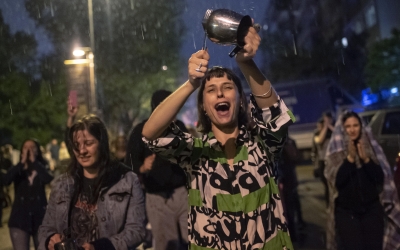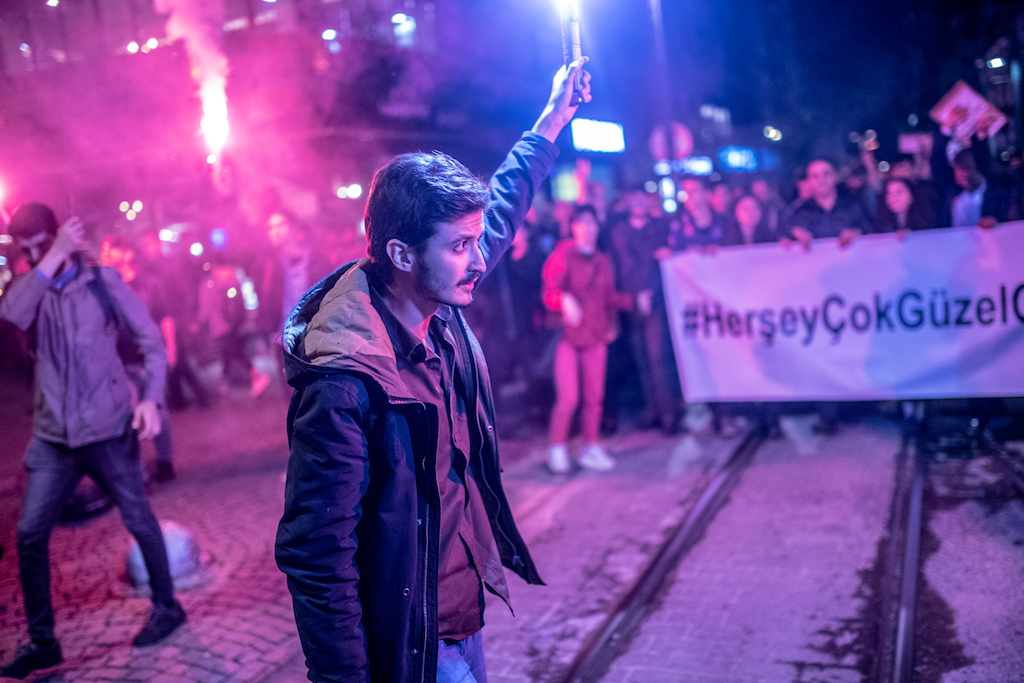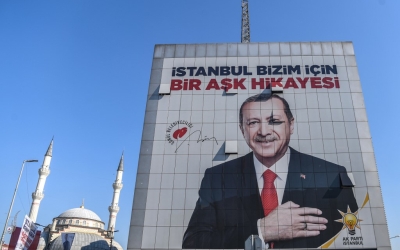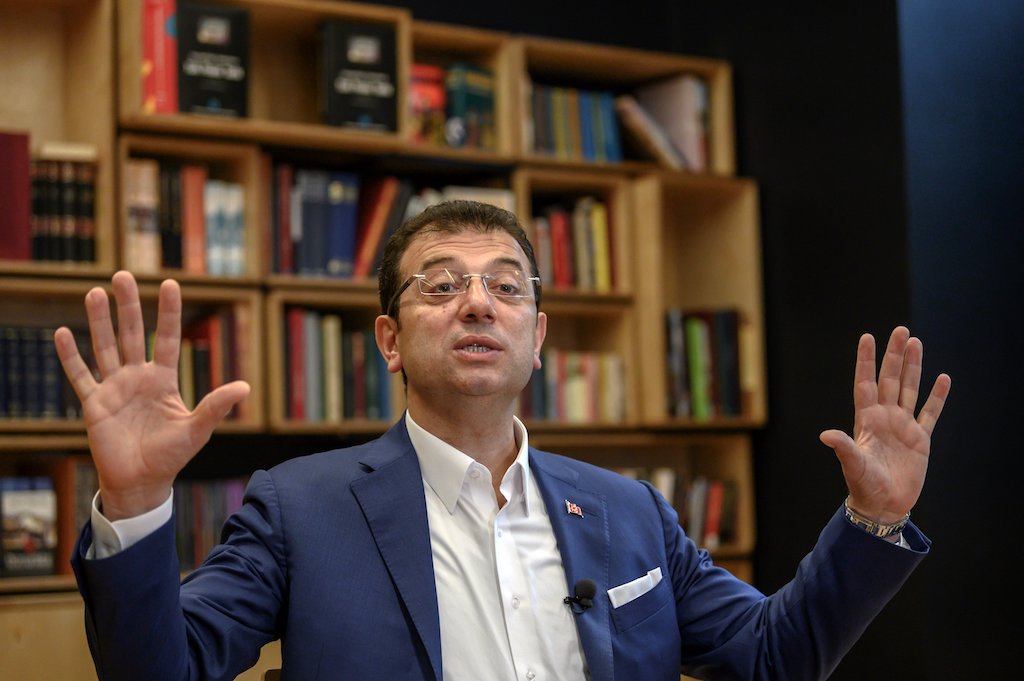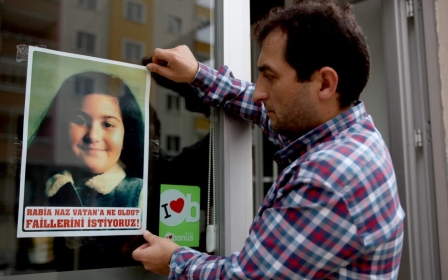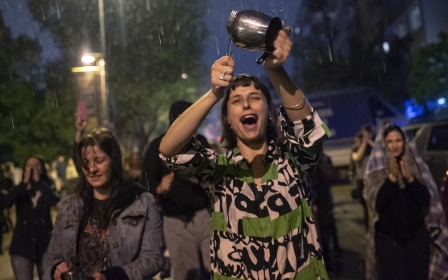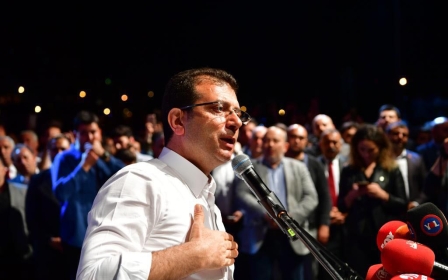Back to square one: Voters remain bitterly divided over re-run of Istanbul vote
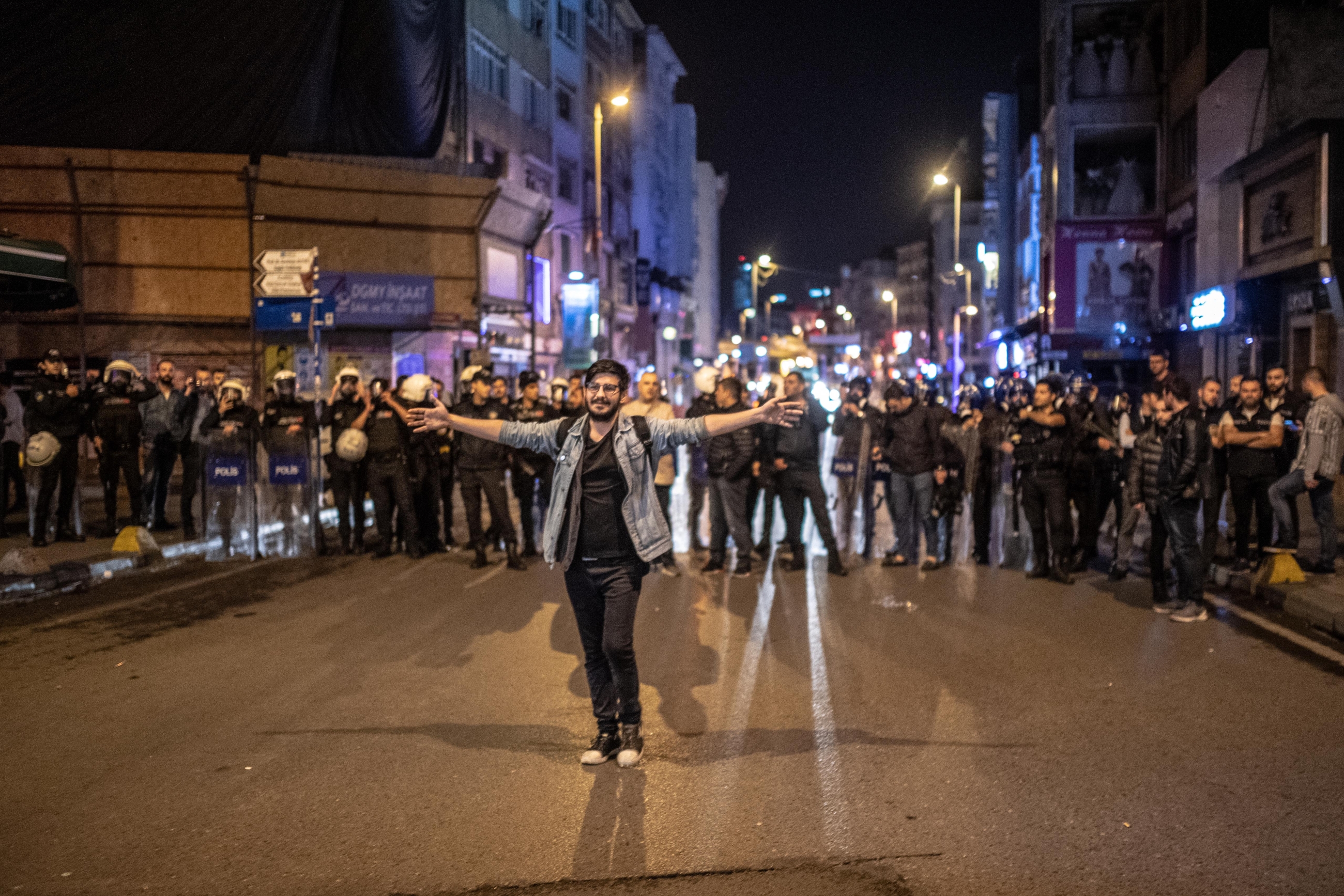
Turkey has found itself in an election race again, after the Supreme Election Board (YSK) cancelled the results of the 31 March mayoral vote in Istanbul, the country's most populated city.
The same candidates will compete in the re-run on 23 June, but the new vote will be held in a markedly different atmosphere.
The newest face of Turkey's oldest political party, Republican People's Party (CHP) candidate Ekrem Imamoglu, will again take on Binali Yildirim, a former prime minister and ex-speaker of parliament, who was also one of the founders of the ruling Justice and Development Party (AKP).
More than 8.8 million out of 10.6 million eligible voters took part in the Istanbul election, and despite 8.5 million valid votes, the difference between the two candidates, after several appeals by the AKP, was just 13,000 votes.
In its ruling on Monday, the Supreme Election Board cited irregularities in the appointment of polling station officials for its decision to re-run the vote.
The AKP said the fact that individuals who were not public servants had been appointed to the polling stations amounted to organised crime.
As President Recep Tayyip Erdogan urged AKP party members to redouble their efforts in the new campaign, irate Imamoglu supporters held protests in Istanbul for three consecutive nights.
'Deceived and worried'
Bahar Ari, a high-school student who cast her first vote in the 31 March mayoral election, took to the streets after hearing of the Supreme Election Board’s cancellation decree.
Ari said: "At the 31 March election, when I heard Imamoglu had won and the decades-long rule of the AKP had ended, I hugged my mother, and we both cried.
"But following the Supreme Electoral Board's decision I felt deceived and worried about what can come next."
The 18-year old said: "I am aware that I have the right to protest and express myself, so I went out to join the march in Kadikoy (a district of Istanbul).
"My mother, who saw the 1980 coup-d’etat was with me. We were both afraid and resentful at the same time."
Ari said that despite being a 12-year old child, she went to the Gezi Park protests in 2013 with her family, and "felt the same feelings" when she was protesting for Imamoglu.
"If, on 23 June, the re-run results are in favour of the AKP I cannot guess what would be my reaction, but I know that I would be intensely angry," she added.
'Gezi or not Gezi'
The Gezi Park protests originally began as a demonstration against the demolition of one of the last green spaces in Istanbul, but quickly spiralled into protests against Erdogan's rule.
More than 3 million people were involved in the demonstrations across the country.
Some of the current demonstrators and social media users highlighted what they said were resemblances between the latest protests and the Gezi Park rallies, often using the same slogans and claiming that a similar part of society is participating in the protests.
However, others did not think that the latest protests were a fresh version of that movement.
Kural, a 25-year-old architect who was on the streets of Kadikoy on the second night of protests, said that "equating today's demonstrations to the Gezi Park protest is absurd and aims to brand the people who wants to show their democratic reactions as 'agent provocateurs.'"
"Me, I am out protesting to express that my vote has been stolen, and the Supreme Election Board made a baseless decision under political pressure.
"And I am afraid that the same things can easily happen again.”
Beste Kural, another protester, said: “After 31 March election, for two days I couldn’t believe that Imamoglu would start his mandate. I thought 'something will happen, and they will not let him start his term,' she said.
"But after seeing Imamoglu’s determination and hearing his strong statements I believed that he could take the chair.
"But now, only one word can express how I feel: distrust. I was already concerned about the democratic processes and the state of law in my country, but now I have totally lost confidence."
AKP needs a renaissance
Necip Saran, a 45-year-old small-scale textile atelier owner, argues that in fact the CHP doesn’t have a more democratic or liberal past than the 17-year ruling AKP.
“The sole objective of the CHP is to overthrow the AKP", he said.
"They are promising neither anything better or new. The media may draw a different image, but in Turkey, the CHP is the party which defends the status-quo and 'regime'. On the other hand, the AKP is the one which still tries to defend the interest of the average citizen".
Saran voted for Binali Yildirim at the 31 March election, and said he'd vote for him again. Why? "Not because I admire his works or expect anything from him, I will vote to defend me and my people's right to exist."
As a Kurdish voter originally from the eastern city of Malatya, Saran tells MEE: "They are using Imamoglu as an unthreatening signboard. He smiles when he talk, he recites the Quran, he acts like a nationalist when he needs to be, he commemorates leftist militants when he needs the votes of leftist voters".
"And I know, in the background, the CHP is cooperating with the Peoples' Democratic Party (HDP), which has not denied links to the terrorist PKK organisation. I am simply not buying this."
'Names being erased from registration lists'
Arif Yuksel, who also voted for Yildirim, told MEE he was willing to vote for the AKP candidate again on 23 June.
“Up until this time the AKP was winning the elections by a wide margin and leaving no room for doubt," he said.
"But now, in a metropolis where 16 million people live, the difference stays approximately at 10,000 votes, which is the equivalent of the population of a small residential quarter.
"Apart from this, a number of irregularities came to the surface, such as the submission of valid votes as 'invalid' without a legitimate reason.
"We have witnessed names being erased from registration lists in an attempt to prevent voters to go to the ballots just before the elections, ballot box documents suspiciously destroyed, polling clerks appointed in unlawful ways.
"After the recounts, the vote difference descended to 13,000 from an initial 30,000. That shows us how tainted this election was. So, the cancellation decree was absolutely necessary."
Yuksel, 33, believes that the AKP will focus on how to persuade the 1.7 million voters who did not go to the ballots for the 31 March elections to vote for the ruling party this time.
"Most of these people are AKP voters, discontented or aimed to give a message to the 17-year ruling party," he said.
Yuksel believes that if the AKP does everything right, Yildirim can be the new mayor of the Istanbul Metropolitan Municipality by a margin which doesn’t allow any dispute.
'Give a lesson' to the AKP
A senior journalist who has been following Erdogan and the AKP closely for years, told MEE: "Now the winds are behind Imamoglu but we still have 50 days until the elections, and that is more than enough for a radical change.
"The AKP explains the poor outcome of the 31 March election under two headlines: irregularities at the ballot boxes and the discontent of voters who aimed to ‘give a lesson' to the AKP.
"Consequently, they are building their new campaign over two essential points.
"Securing the ballot boxes with its highly organised party-members to prevent any vote stealing, or avert any irregularities which may cause the loss of their votes, is the first and easier job.
"Persuading the 1.7 million voters who abstained for the 31 March election, with the aim of ‘giving a lesson’ to the AKP, is the second most important thing to do, and seems to be the hardest obstacle in their way."
The journalist, who wished to remain anonymous, also said that the huge support for Imamoglu coming from celebrities and business people showed that the AKP needs to return his roots by following a strategy which comforts the ordinary citizen.
Erdogan himself appears to be following that path, urging his party members to "work hard," "use a softened language," "stay humble" and "canvass door-to-door" to persuade the undecided voters.
Whether the strategy can work, only time will tell.
Yasemin Yeliz, a 27-year-old who describes herself as a "natural voter" of the AKP, didn’t vote on 31 March to show her discontent and resentfulness towards the ruling party.
While not angry towards Erdogan, she is unhappy at the way the AKP works, whether lower level party members or member of parliaments, and is still undecided on what she will do on 23 June.
Middle East Eye propose une couverture et une analyse indépendantes et incomparables du Moyen-Orient, de l’Afrique du Nord et d’autres régions du monde. Pour en savoir plus sur la reprise de ce contenu et les frais qui s’appliquent, veuillez remplir ce formulaire [en anglais]. Pour en savoir plus sur MEE, cliquez ici [en anglais].


